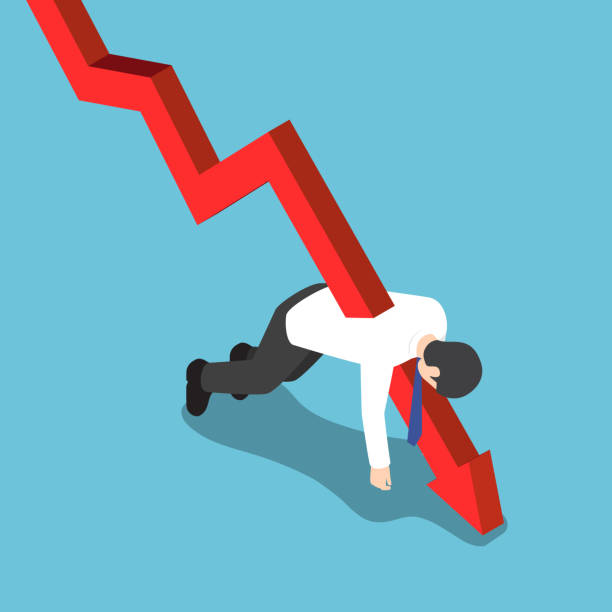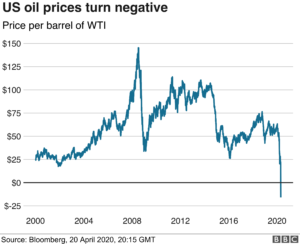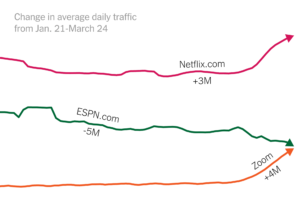
The Covid-19 pandemic has a growing impact on the global market across all domains of economic development. Though governments are pushing their limits to contain the crisis, the deprivation seems overpowering. From raw minerals and manufacturing to sales and services, all business sectors are suffering unforeseen losses. Take a look at how the pandemic has upended different sectors of the world economy.
TOURISM INDUSTRY
2020 has been catastrophic for the tourism industry. Vice President of IHS Markit, Jim Burkhard said: “international travel, certainly by air, has essentially ceased, and that’s shocking.”
United Nations reports international tourism may decline by 60-80 per cent this year. Most international flights have stopped as many countries suspended overseas travel. Hotel bookings and services have evaporated. A few international airlines have also gone bankrupt, including the world’s second-oldest airlines—Avianca Holdings SA, Air Italy, Trans State Airlines, and South African Express. According to the World Travel and Tourism Council, about 100 million jobs are at risk. With the situation so intense, some Asian countries have eased air travel in the past few days, but analysts say it will take a while until international travel revives to its pre-pandemic state.
OIL AND GAS INDUSTRY

One of the linchpins of the global economy is the Oil and Gas Industries. Oil prices were declining even before the pandemic as companies produced products much more than the required demand. Lockdowns and quarantines added to the reduced demand. Companies resort to renting tankers to store the surplus amount of oil, but that did not seem to suffice. By 20th April, oil prices turned negative. The benchmark for US oil, West Texas Intermediate (WTI) priced oil as minus $37.63 a barrel. This meant producers were paying customers to take their commodity.
The next day, UK benchmark for oil slumped 10% to $16 (£13) a barrel. On 30th April, Royal Dutch Shell cut its dividend for the first time since World War II. Shell announced a 46% fall in its net income in the first quarter to $2.9 billion. Chief Executive Ben van Beurden cautioned of “continued deterioration in the macroeconomic outlook.”
In India, curbs on travel were imposed from 24th March; thus, vehicles remained off the road for more than a month. Petroleum and Natural Gas Minister Dharmendra Pradhan stated—the country saw a 70% decline in demand for petroleum products, but it has been able to fill its reserves strategically. Conversely, Times News Network reported the total cooking gas sales thrived up 12% to 2 million tonnes from the previous year.
Experts from Energy Information Administration predicts jet fuel use and gasoline use to fall by 34% and 25% respectively, in the second quarter (April to June). The policymakers of nations around the world will have to take care of this industry to revive the economy post-pandemic.
SMEs
Small and Medium Enterprises (SMEs) accounts for nearly two-thirds of the net new private sectors in many countries. But the 2020 pandemic has affected the industry to extents that have left a majority—out of work.
Few companies which are still hanging by a thread, are working from home. Some have accepted the crisis positively; however, the fear of receiving no pay, persists. Working from home reduces travel time and allows employees to eat home-cooked food. But they also say that meetings with colleagues and clients over calls do not give the same satisfaction as in person. Clients are dissolving or stepping back from continued partnerships as well.
Start-ups are forced to switch their merchandise to equipment in need. Bengalurean online apparel store owner Samik Sarkar told Times of India that he had no choice but to start selling face masks instead of clothes.
In financial support for SMEs in the Middle East, payment solutions company Network International contributed nearly AED 3.7 million in cash to 1000 of its most severely impacted merchant clients.
ONLINE CHANNELS

E-commerce has seen ever-increasing, radical ascends on the graphs. From grocery, apparel and entertainment shopping, consumers have moved over to online shopping. From surveys conducted by Morning Consult, consumers say they wouldn’t feel comfortable shopping at a mall at least for the next six months. There has been a 149% growth in online retails in the US and Canada as of April 21st.
During the stay at home interim, DataReportal states internet usage has boosted by more than 7% since last year this time; around 4.57 billion people are using the internet. Social media users have shot up by 8% to reach 3.81 billion people as of 24th April 2020.
CEO of ad industry consultancy MediaLink, Michael Kassan said that the shift to alternative content platforms with ad-supported and subscription streaming would speed up. “That shift of consumers will also drive the shift of ad dollars,” she added.
Online streaming channels are benefiting quite an amount this lockdown. Analysts from Cowen & Co. are reckoning a 10-20% turnover for Netflix and almost 50% for other streaming services.
Cloud-based Video Conferencing software companies are gaining a significant number of users. Pexip and Zoom are among the top-most used social platforms to connect with co-workers, friends and relatives alike.
HEALTH CARE AND PHARMACEUTICALS
Covid-19 has weakened the pharma sector worldwide. As India is the global producer for manufacturing cheap pharmaceuticals, many countries, including the United States and France, are depending on India for medicines. But India sources 68% of its Active Pharmaceutical Ingredients (API) from China. Since the nationwide lockdown, supplies from China plummeted leaving manufacturers desperate.
Indian pharma company, Chemical, Industrial and Pharmaceutical Laboratories (Cipla) have formulated three drugs to fight against the virus—Remdesivir, Favipiravir and Baloxavir. But the manufacture and sale of the medicines need to be approved and negotiated by Indian pharma firms and American biopharma company Gilead. Again, to receive APIs, “some Indian pharma companies even resorted to chartering private planes to airlift APIs from China,” reported CNN Business.
President Trump’s economic adviser, Peter Navarro said, “Never again should we have to depend on the rest of the world for our essential medicines and countermeasures.”
GOVERNMENT
The above-mentioned sectors are only a few majorly impacted sectors of businesses. In truth, almost all industries—macro or micro are experiencing losses no one had ever expected. In the state of this pandemic, millions of people are losing their jobs, and many have taken their own lives in the grief of the debts they owe to others. While those who have money are helping the needy, soon will run penniless too. The public is now solely reliant on their leaders—the government.
Governments across the globe are handling the pandemic differently for their respective countries. Nonetheless, everyone is striving towards the same goal—a safe and healthy society while maintaining the economy of the country.
Saudi Arabia tripled its taxes on essential goods and services by 15% to increase the government’s revenue. Additionally, they cut down expenditure on major projects by around $26 billion. In Germany, companies accepted reduced working hours and retaining jobs. In Japan, employment subsidy coverage increased; subsidy rate for SMEs raised by 80%.
Aiding the Micro, Small and Medium Enterprises (MSMEs) in India, the government assured ₹20 lakh crores for the sector. Finance Minister Nirmala Sitharaman also announced collateral-free loans, additional debt, and equity infusion. The Ministry promises its citizens that it will “shield the Indian MSME businesses from unfair competition from foreign companies.”
On May 10th US President Trump took the risk of resuming the country’s economy. Many economists predicted a V-shaped graph—a sharp drop and a quick bounce-back as the virus was fading away in regions of the States. However, results showed otherwise. “The graph was W-shaped: the tentative recovery sunk back for a ‘double-dip’ recession before rebounding eventually.
One thoughtless decision will result in the downfall of over a million firms and the entire economy of the country. Prices of all goods will rocket and living styles will change, sacrificing luxury and living simply will nothing but benefit us. As Cornelius Nepos said, “after darkness comes the light.”
Sources: The Hindu, The Times of India, BBC News, Economic Times, Al Jazeera
—Written by Vaishnavi Karkare for MTTN
— Featured image from Google Images
Leave a Reply
You must be logged in to post a comment.